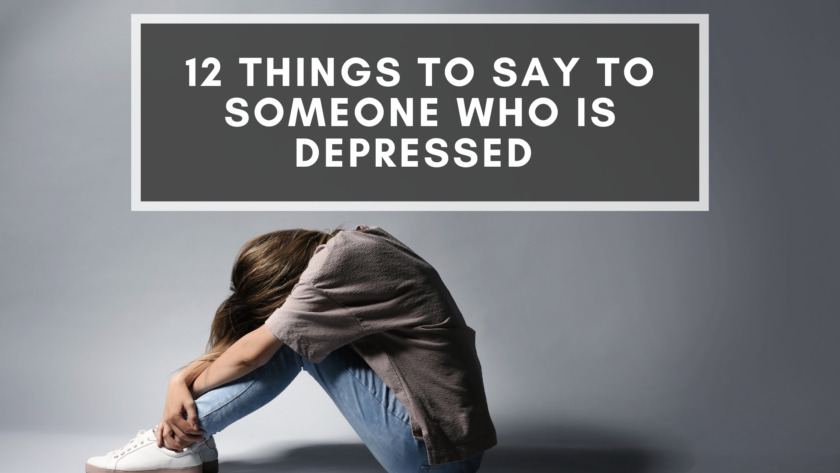Depression is more than just feeling sad or going through a rough patch. It’s a serious medical condition that affects millions of people. Those struggling with depression often feel lonely, hopeless, and misunderstood. While professional treatment is crucial, the compassion and support of loved ones can also make a real difference.
What is Depression?
Depression is a serious medical illness caused by changes in brain chemistry and function. According to the World Health Organization (WHO), 56 million Indians are suffering from depression, while 38 million Indians are suffering from anxiety disorders. It affects how you feel, think, and handle daily activities like sleeping, eating, or working. The most common symptoms include persistent sadness, loss of interest in fun activities, fatigue, changes in appetite, difficulty concentrating and making decisions, feelings of guilt, worthlessness or hopelessness, and thoughts of suicide. Depression can range from mild to severe. Without treatment, symptoms usually don’t go away on their own.
Recognizing Depression in Loved Ones
It can be hard to spot depression, but some common signs include sadness that persists for two weeks or longer, crying spells or outbursts of anger, lack of motivation, neglecting personal responsibilities like work or school, withdrawal from social activities, changes in sleep habits, sudden weight gain or loss, irritability, lack of focus, complaints about fatigue, pains, headaches or digestive issues. Pay attention if someone close talks about feeling empty, hopeless, trapped, or like a burden to others. Listen non-judgmentally and offer your support.
How to Help a Depressed Friend
The compassion of friends and family members can aid recovery from depression. Here’s how you can provide meaningful assistance:
- Spend one-on-one time together. Loneliness often accompanies depression, so your companionship is therapeutic. Invite them on a walk, watch movies, play games, color books, and make crafts – quiet, positive activities boost endorphins.
- Encourage professional treatment. Recommend they seek counselling for depression from their doctor or a service like Click2Pro, which offers online depression therapy via text, phone or video chat. Stress that depression is highly treatable.
What Can You Expect From Click2Pro?
Click2Pro connects people to licensed therapists and counselors for convenient online psychotherapy. Clients are matched with practitioners who specialize in their specific needs. Treatment is provided via secure video sessions, phone calls, or text messaging. Counselors coach clients, provide perspective on problems, teach healthy coping strategies, and help people understand themselves better. Click2Pro aims to make professional mental health treatment easily accessible from home.
If someone close to you is battling depression, you may be wondering how best to help them through this difficult time. Often, well-meaning people say the wrong things, which can inadvertently make the person feel worse.
Here are 12 empathetic, supportive things you can say instead:
- I’m here for you.
Let them know upfront that you are available and willing to listen or help in any way you can. Make it clear you aren’t going anywhere and that you genuinely want to understand what they are going through. Offer to sit with them, take a walk, or do an activity together. The companionship alone can make a big difference.
- You are not alone.
Those struggling with depression often feel isolated and alone. Remind them that you and others care deeply about them. Let them know some people want to support them on the road to recovery. If they are open to it, help them connect with others going through similar struggles.
- This doesn’t change how I feel about you.
Reassure the person that having depression does not change your opinion or admiration of them. Let them know that you see them for their whole self – not just their diagnosis. Your friendship and unconditional support will help them feel understood.
- There is hope.
It’s extremely important to let the person know – sincerely and repeatedly – that the situation can get better in time. Talk about the future in positive terms. Share stories of people who have successfully managed depression. Help counter their negative perspective with messages of genuine hope and optimism.
- You are so strong.
Let them know you admire their courage and resilience in battling this formidable opponent. Talk positively about their strength of character and ability to keep fighting this battle, day after day. Your faith in them will help empower them.
- This isn’t your fault.
Make sure they know that depression is no one’s fault – it’s a medical condition caused by brain chemistry and stressors. No one chooses to be depressed. Offer reassurance that they did nothing wrong and couldn’t have prevented this. Repeat this message as many times as needed.
- Avoid saying, “I know how you feel.”
While empathy is good, avoid saying this unless you have gone through profound clinical depression yourself. Otherwise, it can seem dismissive. Instead, say, “I can only imagine how painful this is,” or “I know everyone’s battle with depression is different, but I want to understand what it’s like for you.”
- What can I do to help?
Ask directly what would be most helpful to them right now. Then, follow through and keep offering assistance. Even small deeds like cooking dinner, walking the dog or sending an encouraging text help lift the burden of daily tasks when depression makes everything harder.
- You’ve overcome challenges before.
If they’ve battled depression or other mental health conditions in the past, gently remind them they have coping strategies, resilient strength, and wisdom to navigate this. Validate how hard fighting these cyclic battles must be. Talk about their skills, talents, and victories.
- Your feelings are valid.
Don’t try to talk the person out of feeling sad or hopeless. Allow them space to open up without judgment. Say, “I know everything seems bleak right now. I’m here and ready to listen when you want to talk.” Make sure they feel truly heard.
- Let me come to your next doctor’s visit.
If they are open to it, offer moral support by attending a therapy appointment or doctor’s visit with them. Afterward, discuss ways you can work together to support their treatment plan. The best recovery plans integrate loved ones.
- I apologize if I ever invalidated what you were going through.
If there were times in the past when you didn’t take their mental health struggles seriously, apologize directly. Make it clear you want to understand what they’ve been trying to tell you fully. Reassure them you are listening now.
The most powerful mental health tool is human connection. Simply spending time with someone who is depressed can boost their mood, outlook, and recovery. Let these 12 supportive sentiments guide what you say while love and acceptance shine through in what you do. Your compassion can inspire hope while they heal.
In Conclusion
Battling depression is difficult, but the compassionate support of loved ones makes a real difference. Spending quality time, encouraging treatment, and offering emotional support to someone who is clinically depressed can significantly aid their recovery journey. Professional services like Click2Pro also expand access to therapy. Depression thrives in isolation and withers under the light of human connection.




